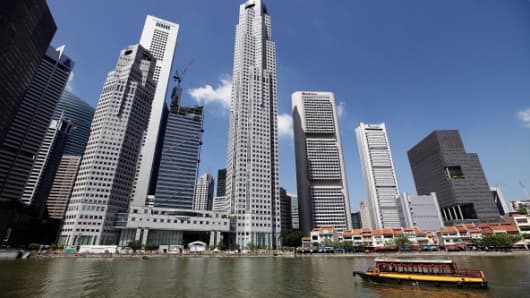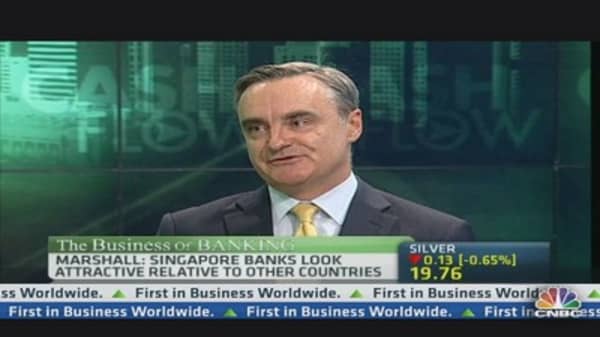Singapore's prime minister, Lee Hsien Loong, promised a "strategic shift" in his country's approach to "nation building" as he laid out plans to address widening income disparity and other threats to the island nation's economic miracle of the past 20 years.
Mr Lee used a two-hour, primetime television address, with a presentation, on Sunday to lay out his plans, the fruit of almost a year of soul-searching by his ruling party as it has grappled with voter discontent.
There would be more government spending on healthcare, including a "pioneer package" of benefits for the older generation of Singaporeans who helped build the country in the 1960s. Housing would be made more affordable and social safety nets improved.
Mr Lee and the ruling People's Action party he heads face the most serious existential dilemma in Singapore's 48 years as an independent nation, political analysts say.
(Read more: Is the worst over for the Singapore economy?)
For a tiny city-state whose land mass is about the same as Bahrain or a moderately sized Caribbean island, Singapore has for decades punched above its weight.
Its economy has grown at an average of 5-7 percent for much of the past decade, helping create a gleaming financial hub in Asia that is closing the gap with Switzerland as the world's largest for wealth management.





